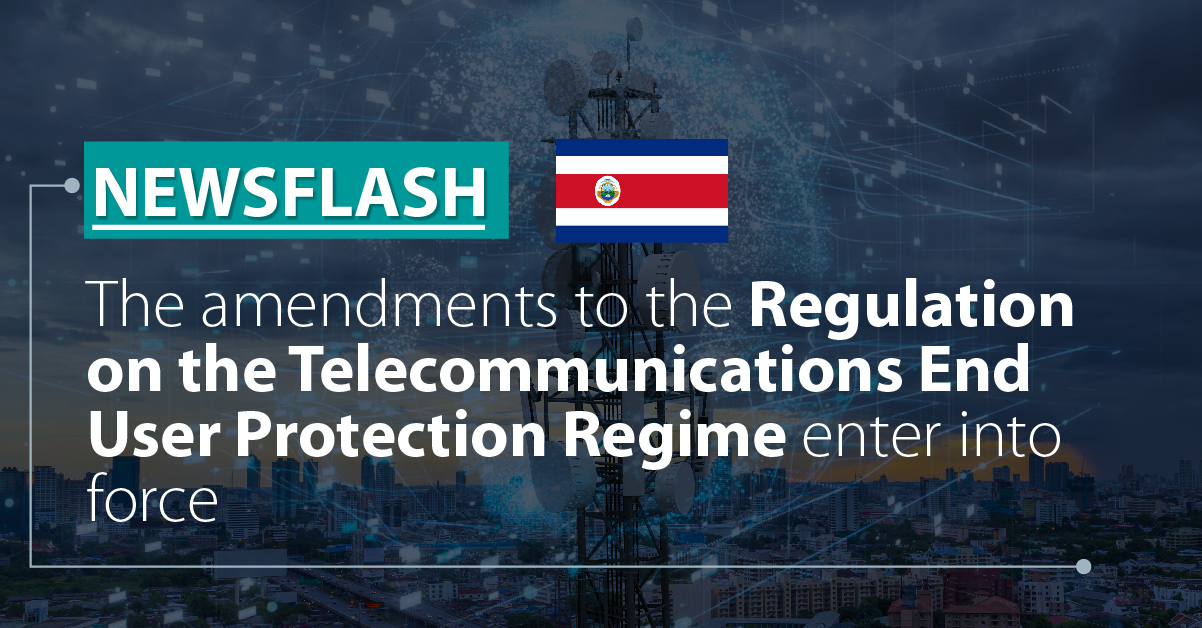On September 22, 2022, the modifications to the Regulation on the Telecommunications End User Protection Regime (the “RRPUF”) were published in Scope No. 200 to Gazette No. 180, that scheduled entry force within twelve calendar months (Transitional I) to be completed on September 21, 2023.
The RRPUF underwent a series of significant modifications. Some of them will have a regulatory and operational impact on the companies that make up the telecommunications industry. Notably, the RRPUF does not apply to all network operators and telecommunications service providers but does apply to a crucial segment: operators and providers that service end users in the strict sense (B2C clients) and corporate clients (B2B clients) due to the particularities of the Costa Rican regulatory framework.
Some of the most relevant new features introduced by this reform to the RRPUF are the following:
- Signed contract: The obligation to sign contracts with clients by in-person or virtual means is more express; it can be “in person or virtually, by means of a digital or physical signature on a printed document or electronic method or another legally defined type” (article 43 of the reformed RRPUF).
- In-person service center in each province: The previous version of the RRPUF established as a general requirement within the content of the adhesion contracts to indicate “physical address of the different offices or commercial branches of the operator or supplier, with the postal and electronic address of the specialized customer service department or service” (previous version of article 21 of the RRPUF), as well as the possibility of other user service channels. The reform is specific in “having at least one in-person End User Service Center in each capital for each province in which it provides its services” (article 11.6 of the reformed RRPUF).
- Payment methods: The original RRPUF introduced the customer’s right to choose the payment method. The modification explicitly requires “making available at least two (2) means that facilitate payment” (article 57 of the reformed RRPUF).
- Free telephone number for the End User Service Center: The obligation to have a free telephone number for end user service is now expressed more clearly at the regulatory level (article 36 of the reformed RRPUF).
- Accessibility: Billing, the commercial offer of terminal equipment, access to the adhesion contract, and general content of the website must comply with “the WEB Content Accessibility Guides (WCAG 2.0) that correspond to the ISO/IEC 40500 standard and its updates or those most recent that are applicable concerning expressly the guides for applying WCAG 2.0 to non-WEB communications (WCAE2ICT), developed by the WEB Accessibility Initiative (WAI).” They must also have trained personnel in person and remotely (articles 6 to 9 and 11.26 of the reformed RRPUF).
- Promotions and offers: They maintain their temporary nature and must have application rules set by the operator/provider with specific content (articles 67-68 of the reformed RRPUF).
- Technical support: This obligation now has more precise content (articles 11.2.iv and 46.10 of the reformed RRPUF).



